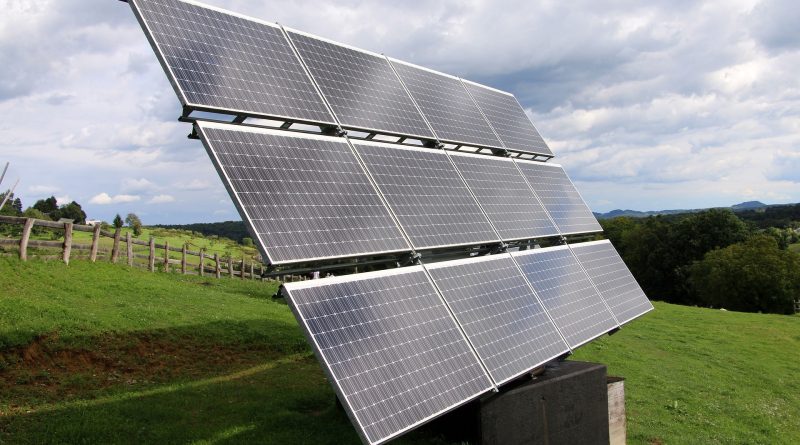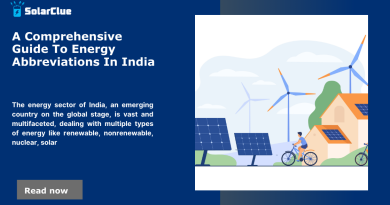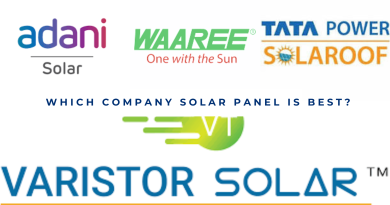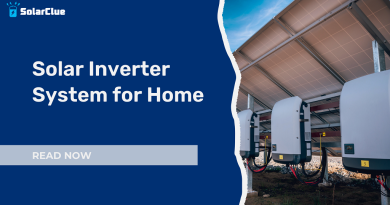Functionality of On-Grid Solar Power System
On-grid solar power systems, also known as grid-tied systems, are rapidly gaining popularity as a sustainable and cost-effective solution to meet the growing energy needs of residential and commercial buildings. By harnessing the power of the sun, these systems allow users to generate clean electricity and contribute to a greener environment while reducing their dependency on fossil fuels. In this blog, we will delve deep into the concept of on-grid solar power systems, their advantages, and how they work.
Table of Contents
What are On Grid Solar Power Systems?
On-grid solar power systems, as the name suggests, are interconnected with the local electricity grid. They consist of solar panels, an inverter, and a metering system. The solar panels, made up of photovoltaic (PV) cells, convert sunlight into electricity. The inverter converts the direct current (DC) generated by the solar panels into alternating current (AC), which is the standard form of electricity used in homes and businesses. The metering system records the amount of electricity consumed by the user as well as the excess electricity generated by the solar panels.
How Do On Grid Solar Power Systems Work?
On-grid solar power systems work on a simple principle: generating electricity from the sun and feeding it into the local electricity grid. When the sun is shining, the solar panels produce electricity. This electricity is then converted into AC power by the inverter. The AC power is then used to power appliances and devices in the building. If the solar panels generate more electricity than is currently being consumed, the excess electricity is fed back into the grid through the metering system. This surplus electricity is then used by other users in the vicinity.
Advantages of On Grid Solar Power Systems
1. Cost Savings: On-grid solar power systems can significantly reduce your electricity bills. By generating your own electricity, you can offset your consumption from the grid and even sell excess electricity back to the utility company, earning you credits or money.
2. Environmental Benefits: On-grid solar power systems are a clean and renewable energy source that produces no emissions or pollution. By reducing dependency on fossil fuels, you are directly contributing to a greener and more sustainable future.
3. Reliable and Consistent Power Supply: With on-grid solar power systems, you can enjoy a consistent power supply even during power outages. Since your system is connected to the grid, you can use electricity from the utility company when your solar panels are not producing enough power.
4. Low Maintenance: On-grid solar power systems require minimal maintenance. Unlike off-grid systems that need expensive battery replacements, on-grid systems are connected to the grid, eliminating the need for batteries.
5. Incentives and Rebates: Many countries and states offer incentives, rebates, and tax credits to encourage the adoption of solar power systems. These financial incentives can help offset the initial investment and make on-grid solar systems more affordable.
Conclusion
Empower your journey towards sustainability with SolarClue®’s on-grid solar power systems. Effectively harness the power of the sun and contribute to a sustainable future by connecting to the local electricity grid. Our systems offer numerous benefits, including significant cost savings, environmental advantages, and a reliable power supply. The increasing popularity of on-grid solar power systems mirrors the growing awareness and commitment to clean and renewable energy sources. Embrace solar power with SolarClue® to enjoy not only individual and business benefits but also to create a positive impact on the environment. Don’t wait; go solar today and start enjoying the advantages of on-grid solar power systems!
Frequently Asked Questions
Solar panels within the system capture sunlight and convert it into direct current (DC) electricity through the photovoltaic effect.
The inverter converts the DC electricity produced by solar panels into alternating current (AC), making it compatible with the electrical grid and suitable for use in homes and businesses.
Mounting structures secure solar panels in place, optimizing their angle and orientation to ensure they receive maximum sunlight exposure for efficient energy production.
Typically, on-grid systems do not use batteries for energy storage. Excess electricity is fed back into the grid, and the grid acts as a virtual storage system.
The on-grid system is connected to the local electrical grid. When the solar panels generate excess electricity, it is fed back into the grid. The user may receive credits for this surplus energy.
No, on-grid systems are designed to shut down during power outages to prevent sending electricity into the grid, ensuring the safety of utility workers.
Combiner boxes consolidate and distribute the DC outputs from multiple solar panels, streamlining the wiring and enhancing safety in the system.
Yes, monitoring systems allow users to track the performance of their on-grid system, monitor energy production, and identify potential issues for timely maintenance.
Yes, on-grid systems can be easily expanded by adding more solar panels and inverters to increase capacity based on changing energy needs.
On-grid systems contribute to reducing greenhouse gas emissions by generating clean, renewable energy, thereby promoting environmental sustainability.




